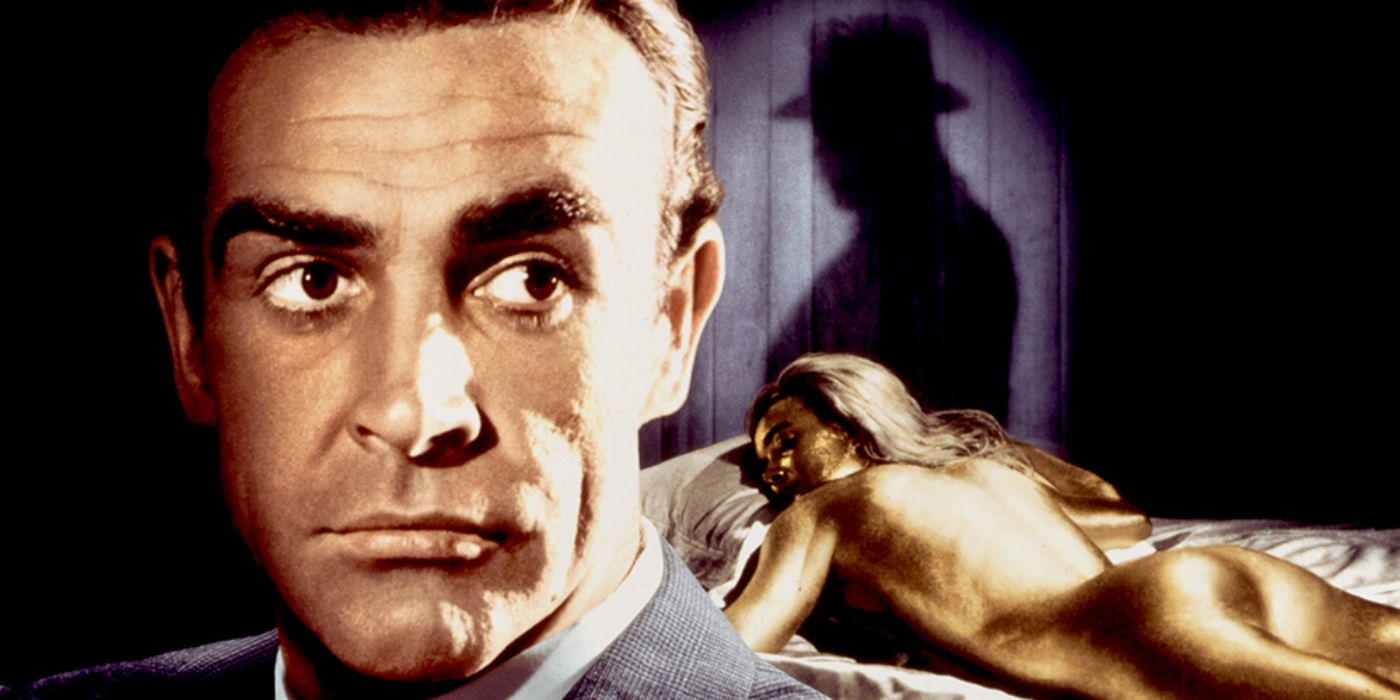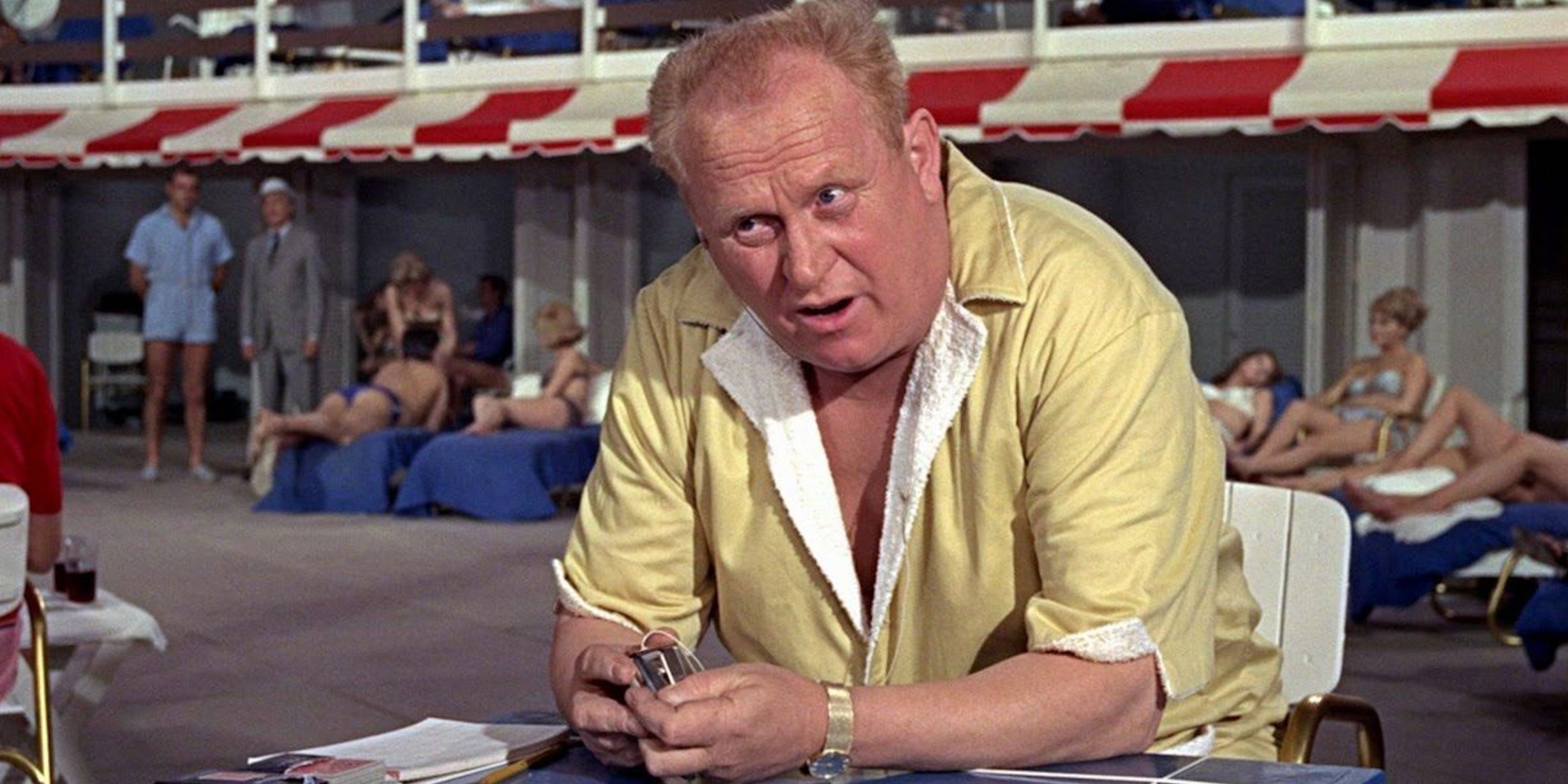Why did the third James Bond film, Goldfinger, get banned in Israel? Directed by Guy Hamilton, the 1964 adaptation of Ian Fleming's novel features a plot against America, but that's not why it was controversial outside of the United States. When the spy film premiered, one of the cast members was known to be a former member of the Nazi Party, which naturally caused theatrical release issues.
Goldfinger stars Sean Connery as MI6 agent James Bond, who investigates entrepreneur Auric Goldfinger, portrayed by German actor Gert Fröbe. The two men play a somewhat-friendly game of golf in South East England, however Bond makes it clear that he's trying to outsmart the gold dealer. Bond later tails Goldfinger to America, where the baddie hopes to detonate a "dirty bomb" at the U.S. Depository in Fort Knox, Kentucky. If the plan is successful, America's gold will be radioactive and useless, which will make Goldfinger's loot even more valuable. Produced for just $3 million, the third Bond movie hauled in $125 million at the box office and was followed up by Thunderball in 1965. Goldfinger co-stars the late Honor Blackman as Pussy Galore, Tania Mallet as Tilly Masterson (in her only feature film role), and Harold Sakata as Oddjob.
When Goldfinger released, it was initially banned in Israel because of Fröbe's involvement. The German was a prolific actor throughout the '50s in his native country, and crossed over into Hollywood by portraying Sergeant Kaffeekanne in the 1962 war film The Longest Day. However, reports surfaced that Fröbe had actually joined the Nazi Party in 1929 as a teenager. By that time, Adolf Hitler had been the Führer for several years. Fröbe remained a member of the Nazi Party until 1937, so his political background was a major point of concern for Israel, the Nation-State of the Jewish People. Between the years 1941 and 1945 during World War II, Nazis were responsible for the deaths of approximately six million Jews.
Fröbe acknowledged his Nazi background when Goldfinger released. In fact, he reportedly stated that “During the Third Reich, I had the luck to be able to help two Jewish people, although I was a member of the Nazi party.” A survivor of the Holocaust acknowledged that the man known as Goldfinger "probably" saved him and his Jewish mother during the war, which apparently led to Israel lifting the ban. However, Fröbe didn't flee Germany after leaving the Nazi Party, but rather stayed in his native country and pursued an acting career. He was later drafted by the German army during the last year of World War II. Fröbe passed away in 1988 at age 75.
Interestingly, Goldfinger actually includes a Nazi reference in relation to Fröbe's character. Around the 22-minute mark, Bond's team acknowledges a plan to lure Goldfinger with "bait" from a "Nazi hoard." Of course, Hitler was infamously an artist during his younger years in Austria, and later orchestrated a plan to hide approximately $3.5 billion worth of stolen paintings. Seventy-five years later, Fröbe's performance art in Goldfinger remains one of the most highly-regarded villain portrayals in the history of the James Bond franchise.


